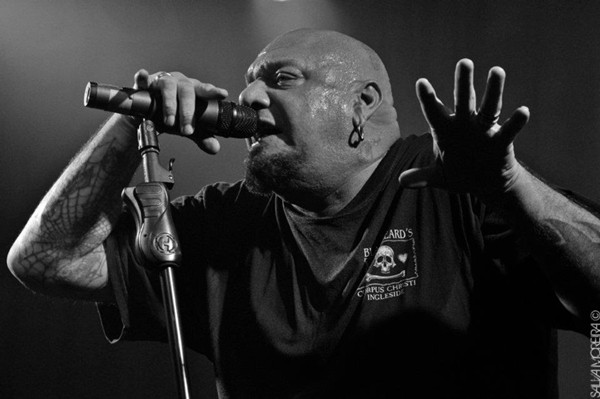While bassist and leader Steve Harris denies the inspiration for the style, former vocalist Paul Di’Anno claims that reference existed – and was brought by him
One of the great points of debate among fans of the initial phase of the Iron Maidenwith Paul Di’Anno on vocals, it is the presence of punk influence in their songs. A part of the public agrees with the opinion of the bassist and leader steve harris that this reference does not exist. Another portion agrees with Di’Anno in the sense that the genre did have an impact on the group’s first works.
In a 2019 interview with Rolling Stone USfor example, Harris denied that the sound of albums like Iron Maiden (1980) and killers (1981) is more visceral by punk influence. According to him, the band didn’t even like the style.
“Some people mistook us for playing ‘punky’ stuff, but really, we didn’t like punks. The punks at that time couldn’t play their instruments like later ones.”
According to the bassist, Maiden’s sharpest sound in its early days came from something much more natural. It was, according to him, due to the “adrenaline”.
“It’s not like we stopped to say, ‘Oh, let’s play fast.’ It starts with the adrenaline, and on stage it gets even faster than when you recorded it. […] The energy of a show can be incredible at certain times. It was never premeditated.”
Paul Di’Anno’s Counterpoint
Paul Di’Anno’s interviews over the years show that at least one of Steve Harris’ lines may be off the mark: that no one in Iron Maiden liked punk. The vocalist, who was part of the group until 1981, has always highlighted his passion for the genre, especially the Ramones.
Even Di’Anno’s look hinted at style, with leather jackets, short hair and other details. In an interview also from 2021, but to classic rock (via Whiplash), the singer revealed the circumstances for dressing and having a hairstyle different from most heavy metal musicians in the period.
“I enjoyed pissing off Steve and the audience with that whole thing. [risos]. I was one of the rare vocalists in heavy metal that didn’t have long hair. I dressed the way I felt I should. If I wanted to wear a kaftan and sandals, I would, but I never did.”
Also during the chat, Paul Di’Anno revealed that he believed he was the one who brought a “punk element” to Iron Maiden in its early years. Especially on stage.
“There’s no denying it: those songs were pretty fast, even if they had some more progressive tempo transitions in them. That’s what made us so unique. Punk allowed everyone who could try to do something, not just those in their ivory towers. Half hour guitar solos never made my mind. Something needs to be real, no matter how bad or good it is.”
It was precisely Iron Maiden’s most technical approach in killers which left Paul a bit put off by Maiden. The singer was fired from the band the year the album was released, due to drug problems and conflicts with Steve Harris.
“At the time of Killers, the band was getting more technical and losing a little bit, for me. I didn’t think the songs had the same ‘attack’ and I started to lose interest. I felt like I might let people down by expressing my doubts about that direction, so I didn’t say anything, but it all built up to the point where I started criticizing Steve the wrong way.”
Eddie the punk?
In the end, even Iron Maiden’s mascot, eddie, had punk influence. Who guarantees it is the creator of the character, Derek Riggs. In an interview with EonMusic (via Igor Miranda website), the visual artist said that the skull was originally going to be of the style in question.
“Eddie was supposed to be a punk. It was the end of the 70s, metal was dead, progressive rock was dead and punk was the only thing that was around. I wanted to paint record covers, so I was going around trying to sell jazz covers and stuff, not really knowing which direction to go in, because suddenly everything was changing. I thought ‘well maybe I should try painting something punk’.”
Even the historic moment experienced by England, the band’s homeland, inspired him in this regard. At the time, the United Kingdom was experiencing a severe economic recession.
“I was trying to create something that punks could understand or identify with because England was awful back then. I mean, we had 4 million unemployed at the worst time and England is only the size of California, so that’s a lot of people.”
Source: Rollingstone
Earl Johnson is a music writer at Gossipify, known for his in-depth analysis and unique perspective on the industry. A graduate of USC with a degree in Music, he brings years of experience and passion to his writing. He covers the latest releases and trends, always on the lookout for the next big thing in music.

